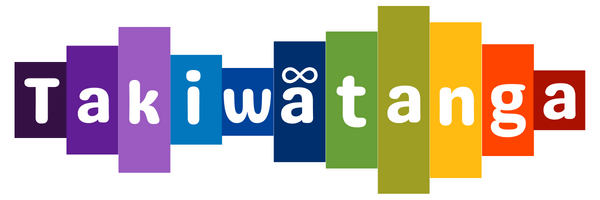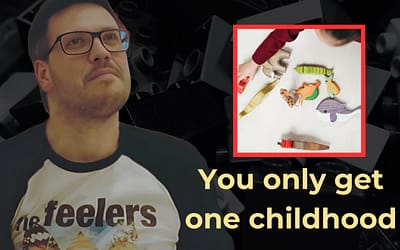Understanding Takiwātanga: A Conversation with Keri Opai
Who is Keri Opai?
[Laughs] Do I have to? Well, I’m Keri Opai, born and raised in Taranaki, and my roots stretch across Aotearoa. My iwi affiliations are Te Ātiawa and Ngāti Ruanui—both from Taranaki; Ngāti Te Ata from Waikato; Waiohua in Auckland; and Ngāti Porou from the East Coast. These connections ground me, and they shape how I view the world and relate to others.
I grew up by the sea, and that’s always been my place of peace—a space where I go to reflect, to think deeply, and to reset. It’s where I went when I was contemplating how to express autism in te reo Māori. I’ve been incredibly fortunate to be taught by Taranaki elders, learning from their wisdom from a young age. That foundation of knowledge, of listening closely and respecting those who came before me, has guided me in everything I do.
The Birth of Te Reo Hāpai
I spent five years working at an organisation now called Te Pou, formerly Te Pou o te Whakaaro Nui, under the umbrella of the Wise Group. My role was that of a Cultural Adviser, a kind of consultant who helps guide tikanga (cultural protocols) and ensures respectful engagement with Māori knowledge systems. I spent a lot of time with kaumātua, listening, learning, and helping to bridge cultural gaps in the mental health sector.
During this work, I noticed something that deeply concerned me: many government documents, health resources, and official communications were getting Māori words wrong—misspelling them, misusing them—or worse, not including Māori concepts at all. I thought, “We can do better.” I wanted to help bring clarity, consistency, and, most importantly, a positive Māori worldview to the language being used in mental health, addiction, and disability support.
That idea grew into Te Reo Hāpai: The Language of Enrichment—a glossary of terms designed not just to translate, but to uplift. Instead of deficit-based language that focuses on what people lack, I wanted to create words that acknowledge people’s strengths, mana (dignity), and uniqueness.
Takiwātanga: In Their Own Time and Space
One of the key challenges was finding a Māori word for autism. In English, the word “autism” often sits within a medical model, focused on what someone cannot do. That didn’t sit right with me. I wanted to find a term that honoured autistic people and reflected how they experience the world—not as broken or deficient, but simply different.
So I took time—six months, in fact—just to find the right word for autism. I went to the sea, to Raglan, and let nature guide me. I listened to the waves, watched the birds, and sat with the rhythm of the ocean. I remembered a piece of advice from my youth, when an elder told me, “Go and listen to what the sea has to say.” That’s where clarity often comes for me—in that space, with no rush, just deep reflection.
As I thought about autism, I remembered my lifelong friend Pete, who is autistic. At school, Pete was bullied. I couldn’t stand that. I stepped in and we became mates. I never saw Pete as someone with a “disorder.” He just had a different rhythm to life. If you took the time to really be with him, to walk at his pace, he was just like anyone else—funny, kind, and talented. We’ve stayed close all these years.
That friendship inspired the word Takiwātanga, which literally means “in his/her/their own time and space.” It reflects the experience of autistic people, who often move through the world in ways that are unique to them. They don’t need to be forced into someone else’s timeline or expectations. They need space to be themselves, in their own rhythm.
Global Impact and the Power of Language
When I released Te Reo Hāpai in 2017, I had no idea it would resonate far beyond Aotearoa. We gave out 10,000 physical copies around the country, and 8,000 downloads have come from places as far away as Russia and Eastern Europe. Scientists even contacted me saying, “You summed up in one word what it takes me 400 pages to describe in a thesis.”
It’s humbling. And it shows just how powerful language is. It can be a weapon or a gift. It can crush someone’s spirit or lift them up. My hope is that Takiwātanga does the latter—for autistic people, for their families, and for anyone who wants to see autism in a new light.
Personal Reflections from a Parent
I’ve had conversations with parents who are navigating autism with their children. One father shared how his son didn’t eat for an entire day, and how helpless they felt. Then there were sleepless nights, 2 a.m. wakeups, and the constant effort to make sure their child felt safe and understood.
These challenges are real—but so is the joy. That same child played beautifully on his own, engaging in parallel play while his siblings played nearby. He wasn’t disengaged—he just needed his own space, his own rhythm. That’s Takiwātanga in action.
This father told me that, at first, they thought about getting a formal diagnosis, wondering if the assessments were “correct.” But over time, they saw that their son wasn’t broken—he was simply different, and deserving of the right support, the right education, and most importantly, the right to be himself.
A Word for Everyone
Some people have asked if it’s okay to use Takiwātanga, especially if they are not Māori. My answer is simple: yes, use it—but use it with respect. I created this word for everyone to use, to promote a more positive, inclusive understanding of autism. The only thing I ask is that it’s not used for profit. It’s not a business tool—it’s a tool for compassion and understanding.
I’ve seen others use it without asking, and while I won’t name names, it’s hurtful when the intent of the word is ignored. But when someone asks permission and truly wants to honour its meaning, I’m more than happy to say: go for it.
Final Thoughts
We all face challenges, whether as parents, friends, or individuals. But how we frame those challenges makes a difference. Bad weather isn’t “bad” for the flowers or the earth—it’s just weather. Autism isn’t “bad” either—it’s just a different way of experiencing life.
By embracing words like Takiwātanga, we move from judgment to acceptance, from fear to celebration. My hope is that this word helps people see autistic individuals not as problems to be fixed, but as people with their own gifts, needs, and natural rhythms.
Let’s walk with them—in their own time and space.
Kia ora e hoa. Thank you.




0 Comments